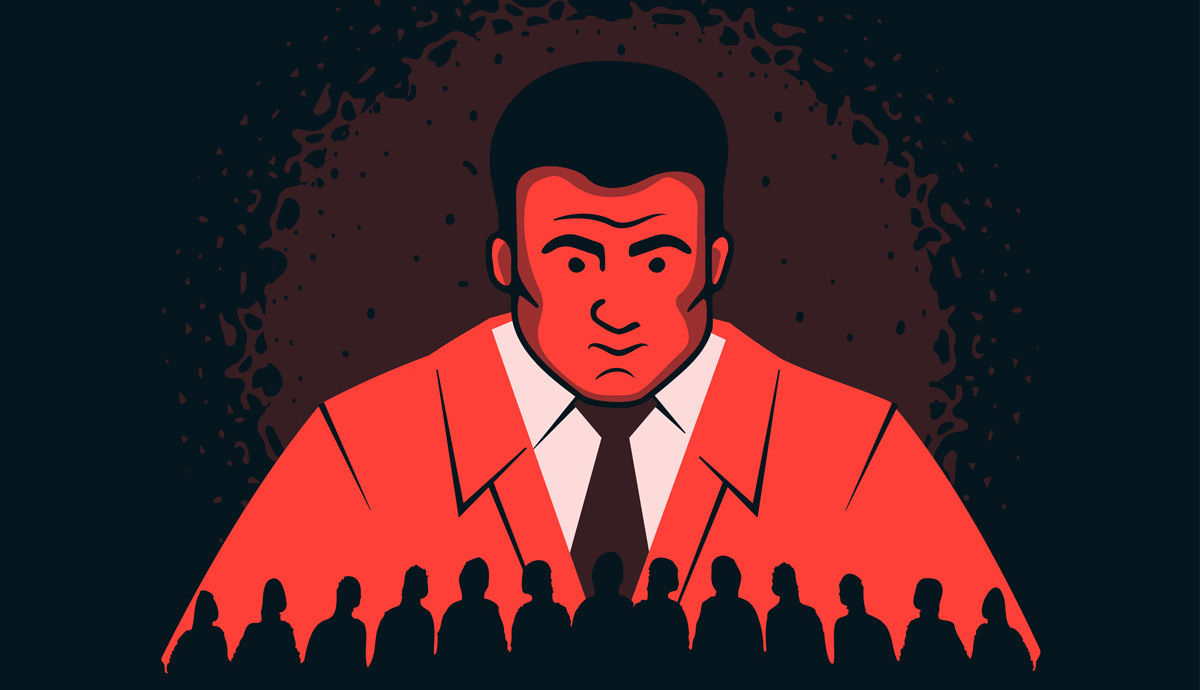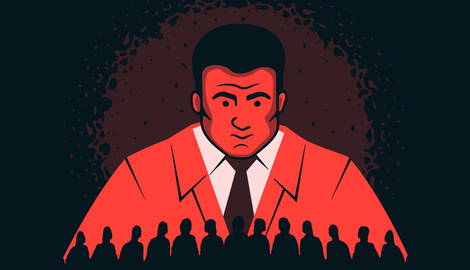
Fear is the tool of choice for contemporary politicians. They use it to influence public opinion and gain power. This article explores the origins of fear in contemporary politics and argues that Thomas Hobbes’ arguments in Leviathan, and especially the conviction that the main driving force for human beings is our fear of death and suffering, is one of the most enduring and influential accounts of fear’s use as a tool for the formation of state power.
What Is Hobbes’ Leviathan?

Hobbes’ most influential work, Leviathan, has profoundly impacted our comprehension of government and social contract theory. To gain a better understanding of its origins, we must take an in-depth look at the life and works of Thomas Hobbes. Hobbes was an English philosopher who lived during the turbulent 17th century when England experienced a traumatic period of political strife concluding in civil war. His work sparked a revolutionary reappraisal of political authority and its purpose.
In 1651, Thomas Hobbes published Leviathan, which articulated his vision of what it would take for any society to function peacefully: an all-powerful sovereign capable of maintaining order through force. Hobbes argued that in exchange for their own safety and security, individuals must surrender certain rights to this Leviathan (the state). He maintained that such a strong entity is necessary if chaos and violence are going to be avoided.
Hobbes argued that this is necessary because people are driven by self-interest. Without a powerful governing body, chaos and conflict would ensue. The concept of the “social contract” asserts that citizens surrender some freedoms to gain protection from such an institution. Although they were initially subject to a great deal of criticism, Hobbes’ ideas challenged pre-existing perspectives on human nature, autonomy, and democracy—leading some to accuse him of advocating authoritarianism or even tyranny.
The Concept of Leviathan as a State

The concept of the Leviathan state has been a major influence on political philosophy ever since. The term’ commonwealth,’ commonly used to describe groups united by a common cause at that time, was not easily translatable; instead, Hobbes chose to use ‘state’—then a relatively new word. For him, it signified an entity distinct from its citizens or rulers – something with an independent structure and which could function independently of its citizens.
But how did this force come into being? The idea of the social contract raises as many questions as it answers, as does the idea that leaders are really separate from those whom they rule over.
War of All Against All

Before the social contract, people were in a state that Hobbes calls “the war of all against all.” Hobbes’ work is easily oversimplified, reduced to the idea that when people get tired of fighting, that is when a state can appear. However, in his writing, one can find direct indications that he would never have put his theory in this way. It is not the war of all against all that is at the beginning of everything, but the social condition, the state condition of people, is constantly fraught with war.
People, in principle, according to Hobbes, are quite hostile towards each other. This is an ambient feature of human nature, not liable to be altered even by an alteration of social circumstance. In other words, even in a peaceful country with a strong state, even when there is no war, people have to fear their neighbors, fear others around them rather than count on the fact that they will turn out to be their friends. In other words, fear is an intractable part of human nature.
Leviathan as a Guarantor of Stability

This means that no peaceful coexistence is possible, even between neighbors, as long as the contracts that they enter into among themselves are simply contracts based on trust, in the expectation that the other side will honor the contract with no threat of violence being implied.
So, what is required? Hobbes believes that the kind of agreement required is one which would be impossible to violate. It is impossible to violate only an agreement that has a guarantor. None of the parties to the treaty can be the guarantor of this treaty because they are all the same; they are equally strong and equally weak. And since none of the participants can be the guarantor of the contract, then this guarantor must appear from somewhere outside.
Those entering the contract must agree to give the guarantor certain kinds of rights in order to regulate the contract, and when that guarantor is the state, then the corresponding rights are liable to be backed up by violence, or at least the threat of violence.

Only the sovereign can issue any law; only he can interpret any law, punish violations of the law, appoint judges, make appointments to an executive office, appoint ministers, officials, controllers, absolutely everyone. It is for this reason that peace, tranquility, and security are established. And although Hobbes does not talk about the police, he leads the conversation in this direction. He supports the idea that a certain restriction of rights and freedoms is required to establish peace, tranquility, and order.
People can engage in any activity which does not threaten the coherent existence of the state. They can acquire property; they can conclude agreements among themselves; they can even profess any beliefs but with one restriction: that this is not to the detriment of the state.
According to Hobbes, people are willing to submit themselves to a sovereign power because they’re afraid of what might happen in a state of nature— total anarchy where everyone is out for themselves. Fear becomes a kind of currency: if you want security, you need to pay with your obedience.
What About the Fear?

When discussing politics fuelled by fear, it becomes imperative not to overlook the lasting influence of Hobbes’ Leviathan as a critical landmark in political theory.
At its core, Leviathan postulates that individuals are naturally self-interested and competitive creatures who continually stand at odds with each other—fuelled by the fear of what chaos could arise if we allowed these tendencies to boil over.
This looming sense of risk and insecurity drives all of our actions—both on an individual level as well as within our shared social framework. Governments operate under similar principles—motivated by fears such as dissension from citizenry or losing power—hence they too require a Leviathan (all-powerful sovereign) at their center in order to hold them back from their natural propensities towards violence and chaos.
Hobbes argued that even our own desires for peace and prosperity ultimately stem from fear,as we seek to protect ourselves from harm or danger. While some critics have taken issue with his somewhat cynical view of human nature, it’s hard to deny the lasting impact Hobbes has had on our understanding of politics today.
Ultimately, when considering the role of fear in contemporary politics (and beyond), it’s worth understanding how deeply embedded this idea is within intellectual history and the exceptional influence his work continues to have on politicians of various political persuasions. Whether you agree with everything Hobbes had to say or not, there’s no denying his influence on how we’ve come to understand humanity’s most primal emotions and impulses.
So, How is Hobbes’ Leviathan Relevant in Contemporary Politics?

Hobbes famously argued that human nature is inherently selfish and violent—we’re all just a bunch of wild animals at heart. To keep this chaos in check, he thought a strong central government (i.e., a “Leviathan”) was necessary. But why would people give up their freedom to this all-powerful ruler in the first place? Fear.
If we fast forward to modern times, we can see how fear has continued to play a huge role in contemporary politics. Politicians use scare tactics all the time—whether it’s warning us about terrorists or immigrants or economic collapse. They try to convince us that they’re the only ones who can protect us from these looming threats.
But here’s where things get complex: is it ethical for politicians to exploit our fears like this? Are they genuinely protecting us or just manipulating us into giving them more power? And what happens when fear becomes so pervasive that it starts infringing on our rights and freedoms? These are questions Hobbes didn’t get around to answering himself. But his ideas have sparked important conversations about how power and fear intersect in contemporary politics.
So next time you hear a politician telling you what needs protecting and why they should be the ones doing it, it might be worth taking a moment to think about what role fear is playing in their pitch. After all, as Franklin D. Roosevelt once famously said, “The only thing we have to fear is fear itself.”











